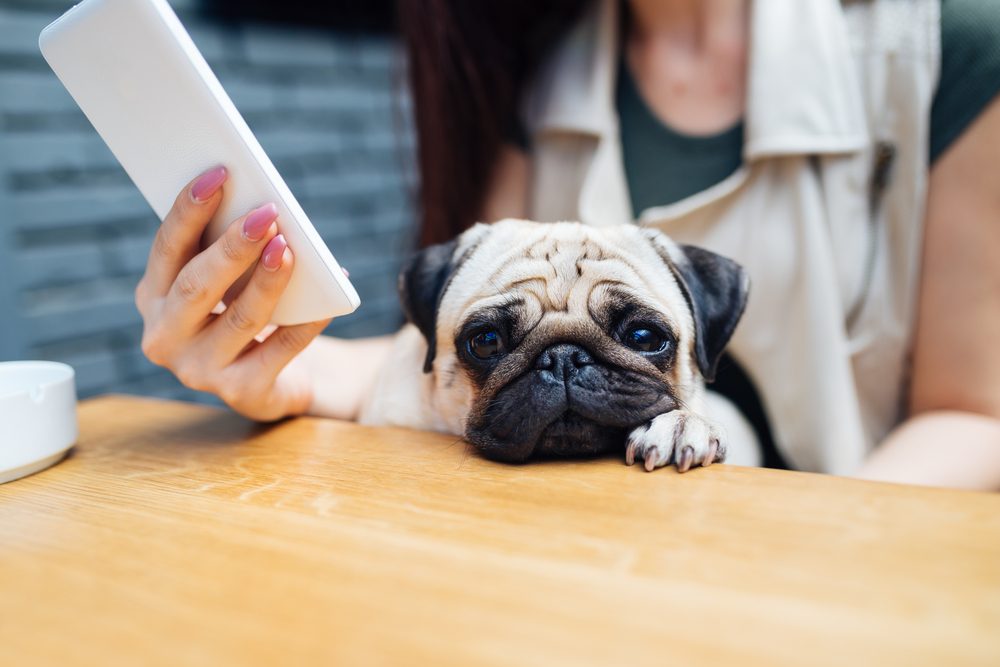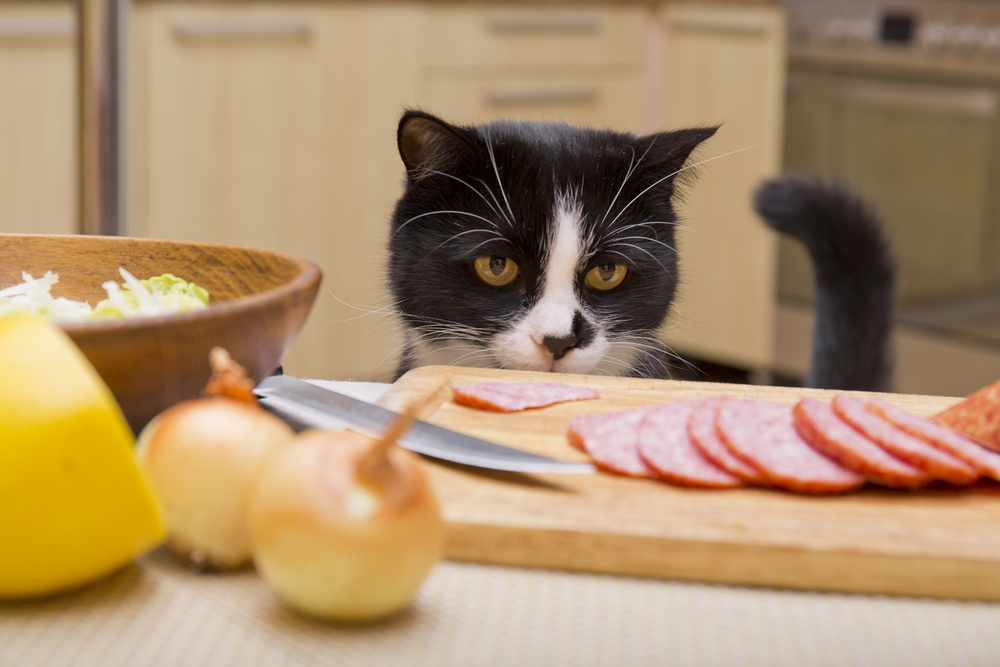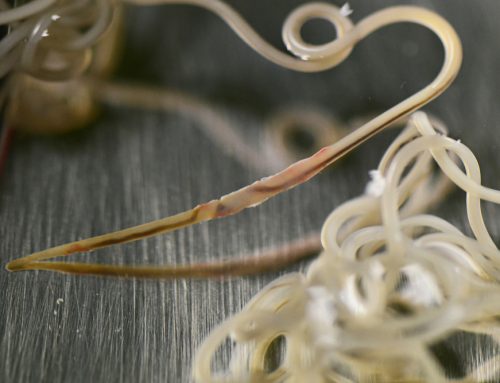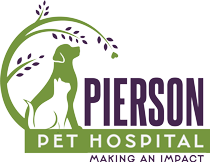Pets are talented creatures—if trouble lurks, they’ll find it. Because of this, pet poisonings are a common event, so much so that the ASPCA Animal Poison Control Center receives several hundred thousand calls each year. Pets are vulnerable to poisoning from many common items in and around your home, if you’re not aware of the dangers. Our Pierson Pet Hospital team shares the most common pet toxins, so you can safeguard your pets from an emergency situation.
Pet toxins in the kitchen
The kitchen can be a dangerous place for pets, because many foods that taste good and are perfectly safe for people can be harmful to pets. These foods include:
- Chocolate — Theobromine in chocolate can stimulate your pet’s nervous system, resulting in vomiting, hyperactivity, hyperthermia, tremors, seizures, or death. Severity depends on the amount your pet consumes, and how dark the chocolate. Other related compounds in coffee and caffeine cause similar signs.
- Grapes and raisins — These tasty treats cause kidney failure in some dogs. The toxin and level of safe exposure are unknown, so treatment is always recommended if you suspect your pet ingested these foods.
- Xylitol — This artificial sweetener, commonly used in mints, gum, baked goods, and more recently, some types of peanut butter, is safe for people. In pets, however, xylitol can cause insulin release, resulting in a rapid, dramatic drop in blood sugar, and causing confusion, vomiting, or seizures, and subsequent liver failure.
- Onions, garlic, chives, shallots — A compound in this family of veggies causes red blood cell damage in pets, leading to anemia. Stomach upset is also possible.
- Macadamia nuts — Like grapes and raisins, the toxic compound in macadamia nuts is unknown, but these nuts can cause weakness, depression, vomiting, and hyperthermia in dogs.
- Raw bread dough — Bread dough containing yeast can ferment in your pet’s stomach, causing alcohol intoxication and poisoning. The dough may also rise and cause stomach blockages or bloat, a life-threatening situation.
To prevent food toxicities, remove temptation by keeping food off counters and safely stored. Keep mischievous pets out of the kitchen entirely when they’re left unattended.
Another possible threat in your kitchen is a decorative bouquet or display containing toxic flowers such as lilies. Lilies can cause rapid kidney damage in cats after only a slight nibble, so be sure to keep these out of reach—or out of your home entirely.
Pet toxins in the bathroom
Over-the-counter and prescription medications pose a threat to your pets, if consumed. Common medication poisonings include:
- Over-the-counter medications — Non-steroid anti-inflammatories (i.e., ibuprofen, Aleve, aspirin) and acetaminophen can cause severe liver or kidney damage in pets. Cold medicines, decongestants, vitamins, and herbal supplements can be harmful, too.
- Prescription medications — Pets commonly ingest ADHD, cardiac, antidepressant, and anti-anxiety medications, which can cause serious toxicities and organ damage, depending on the dose and specific medication.
- Veterinary medications — Flavored medications consumed in bulk can damage organs or cause stomach ulcers. Flea medications intended for dogs may cause acute poisoning in cats.
To prevent medication poisonings, secure all medications in a high cabinet or drawer your pet cannot access, and keep guest purses and bags out of your pet’s reach.
Pet toxins in the garage or shed
- Rodenticides — These are poisons meant to attract and kill mice and rats, but can do the same to your pets. Many rodenticides are available, including products that prevent blood clotting, cause kidney failure, or cause brain swelling, seizures, and death.
- Antifreeze — Ethylene glycol, an antifreeze ingredient, causes severe, rapid kidney failure, and can lead to death in pets. Antifreeze tastes sweet, so your pet may be tempted to lick any spills on the garage floor or in open containers. De-icers, automotive oil, radiator and brake fluids, photography developers, paints, and solvents are some items that contain large ethylene glycol amounts.
Rodenticide and antifreeze poisonings are extremely serious. Your pet will require emergency treatment immediately if you suspect they have been in contact with either toxin. To avoid a tragedy, use alternative methods for rodent control whenever possible, and never leave your pet unsupervised in areas where antifreeze may be present.
Pet toxins in the yard
While lilies are a common indoor plant toxin, many other indoor and outdoor plant species can be toxic to your pets. When you move to a new home, or before planting a new garden, check out the ASPCA’s list of toxic plants, to ensure you don’t expose your pets to anything harmful.
Fertilizers, lawn chemicals, and pesticides can be harmful to your pets, as well. Store these items securely away when not in use, and ensure your pets are inside when you are using the products. Keep your pet off the lawn for as long as recommended by the manufacturer or company, to ensure their safety.
What to do if your pet ingests a toxin

If your pet ingests or comes into contact with a toxic or potentially toxic substance, call your veterinarian, emergency hospital, the ASPCA Animal Poison Control Center, or the Pet Poison Helpline for advice. Treatment and recommendations will depend on the substance, amount, and timing of ingestion, and whether your pet is showing any illness signs. If treatment is recommended, your pet may require decontamination, antidote administration, IV fluids, and hospitalization with supportive care.
Toxins seem to lurk around every corner, but you can safeguard your pet by keeping the most common toxic items out of reach. If your pet does ingest a toxic substance, contact our Pierson Pet Hospital team right away for advice.







Leave A Comment